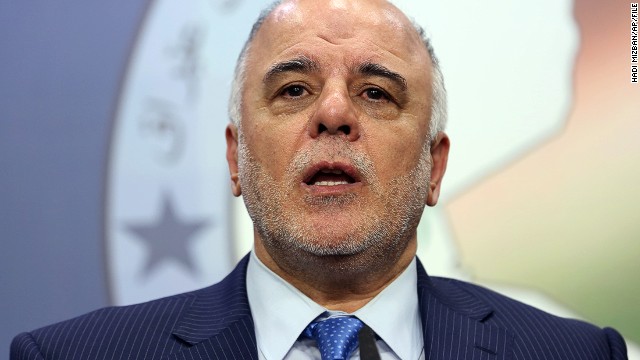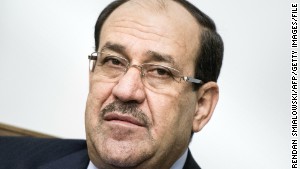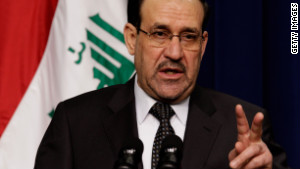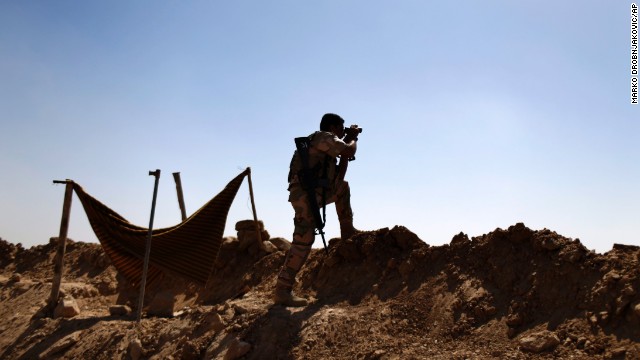Iraqi lawmakers approve new government; al-Maliki becomes VP
 Iraqi lawmakers approved a new government Monday and tapped former
Prime Minister Nuri al-Maliki as one of the country's three vice
presidents.
Iraqi lawmakers approved a new government Monday and tapped former
Prime Minister Nuri al-Maliki as one of the country's three vice
presidents.
Several key Cabinet posts remain vacant.
Prime Minister Haider
al-Abadi vowed to have nominations for the defense and interior minister
posts ready to present to Parliament within a week.
Monday's Parliament vote,
just a day before a constitutional deadline, comes as Iraq faces
political turmoil and battles a surge of Islamist militants from ISIS.
Along with al-Maliki, former Prime Minister Ayad Allawi
and former speaker of Parliament Osama al-Nujaifi will also serve as
vice presidents. Allawi and Al-Maliki are longtime political foes.

Iraqi State TV: Maliki has stepped down

Maliki's roadmap to crisis

Are Sunnis the key to stopping ISIS?
 Photos: Iraq under siege
Photos: Iraq under siege
The vice presidential post is largely ceremonial, but al-Maliki's appointment leaves him in a visible position of power.
Critics have accused
al-Maliki of consolidating power and persecuting political rivals,
blaming him for fueling Iraq's problems with sectarian policies that
alienated Sunni Muslims.
Iraqi politicians have
been under intense pressure from the United States to form an inclusive
government representing Sunni, Shia and Kurds. U.S. President Barack
Obama has said that would be a key condition for more U.S. support, and
an important step in fighting militants from ISIS, the Sunni extremist
group that calls itself the Islamic State.
On Monday, U.S. Secretary
of State John Kerry said the government's formation is "unquestionably a
major milestone," adding that it "has the potential to unite all of
Iraq's diverse communities."
"Now is the time for
Iraq's leaders to govern their nation with the same vision and sense of
purpose that helped bring this new government together in the first
place," Kerry said. "In that effort they should know that the United
States will stand shoulder-to-shoulder with Iraqis as they implement
their national plan."
A spokesman for U.N.
Secretary-General Ban Ki-moon said the new government is a "positive
step towards political stability and peace" in Iraq.
It's too soon to say whether Monday's reshuffling will quell tensions and win over members Iraq's Sunni minority, who bitterly complained of being marginalized and cut out of the political process by al-Maliki's Shiite-dominated government.
A more inclusive government, Obama said last month, would give confidence to Sunnis that ISIS "is not the only game in town."
Outlining his government
program Monday, al-Abadi vowed to rebuild security forces, stamp out
corruption and make sure weapons were only in the hands of the state --
not militia groups.
Iraq is "under a vicious attack," he said, and security forces will fight until "victory."
Whether the new government will be able to settle political differences and bring the country together remains to be seen.










0 comments:
Post a Comment